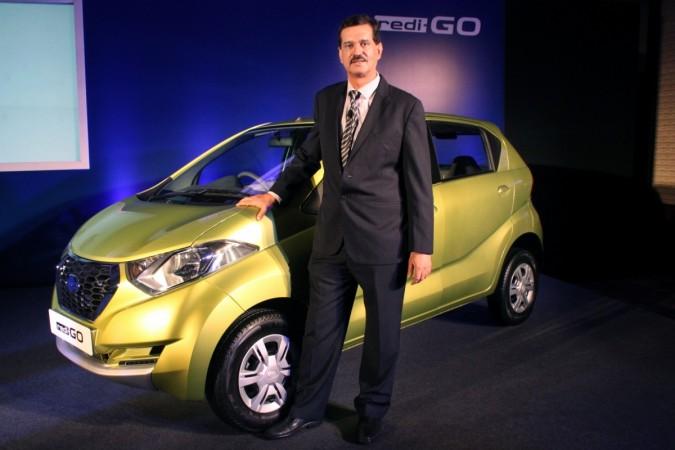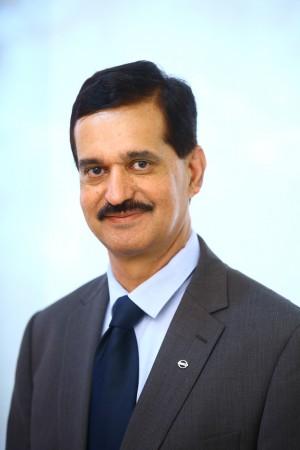
Nissan India, a 100% subsidiary of Nissan Motor Co. Ltd. Japan is accelerating on its growth in India. The company, which now also has Datsun brand under its umbrella, has witnessed a growth of 54 percent in this financial year and says the future looks promising.
Arun Malhotra, MD, Nissan Motor India Pvt. Ltd. in an exclusive interaction with International Business Times, India opens up on the auto major's inroads in India, the entry of iconic GT-R, innovations, product portfolio, future of electric cars and more...
Excerpts:
International Business Times: We are in the penultimate month of 2016. How would you want us to look at the year 2016 for Nissan in India? What are your greatest takeaways?
Arun Malhotra: In the auto industry, numbers speak for themselves and I think we have done remarkably well. There are two numbers, which I think are important to us. To me, the biggest achievement of this year is Nissan being ranked 2ndin the JD Power Asia Pacific 2016 India Sales Satisfaction Index (SSI) studySM. This is a big leap for the company compared to last year where we were ranked 3rd. Coming to the second part of your question, in a country like India, the winner takes all and in this financial year we have achieved a 54 percent growth. Although the base is less, the trend is significant. Nissan is inching up in all key parameters.
IBT: What do you attribute the result to?
Arun Malhotra: Since the measurable variables --overall awareness, sales and customer satisfaction - are positive, that means we are doing it right. We are keen to accelerate our growth. Now if we take the case of availability of spare parts, initially, it stood at 80 percent but now we have moved up to 96 percent. This spare parts are now readily available. Secondly, customer satisfaction was used leverage against is but we are tackling that too.
IBT: Datsun made a positive entry into the Indian market but a couple of months later, the enthusiasm seem to have fizzled out. What is Nissan's take on its journey in India so far?
Arun Malhotra: I think the enthusiasm is still there. To me, the tougher markets are in the smaller towns, which are difficult to reach. And even if you reach, to establish yourself is very difficult. But what is satisfying is that those markets are responding well to Datsun. We are inching forward there too. There are some of our products, which are still not doing well. But for me, whichever we are doing right is important. The market is changing and if one is able to get the pulse of the change and mirror the same in your actions, I think the job is done. The challenge is 'to think global and act local'.
IBT: Has Nissan got the pulse of the Indian motor enthusiasts or it's still on a learning curve?
Arun Malhotra: I must admit it has been a challenging journey but we are calling it correct in many areas. The first year was a trifle difficult but things are looking up. I can say that wherever we are making efforts, we are getting the results. It is a virtual cycle with its own challenges. Datsun has already taken the right steps on its journey since it is positioned for a young aspiring India.
IBT: We have been talking to number of motor vehicle enthusiasts in the country and they seem to have mixed responses to redi-GO. Would you agree?
Arun Malhotra: I don't agree because what we have registered so far is a positive and clear response. We only need to expedite the response. Whoever has tried the product is happy with it. Datsun is a brand, which will take time for Indians to warm up to, because it is not a most-known brand in the country, but I believe as long as our focus is right, I believe it's fine. I strongly feel that the the direction is right.

IBT: Would you admit that redi-GO did not experience Renault Kwid-like moment despite being built on the same platform?
Arun Malhotra: The redi-Go came one year after Kwid. When you come into a market one-year after, you have to work harder. I believe the right time to make a judgement will be after four years. But the redi-Go has created a certain momentum, which is positive. We launched the Sport-edition of redi-Go, which nobody had thought about. As a sport edition for an entry-level car, it was a refreshing addition and we have succeeded.
IBT: What is your forecast for Nissan in 2017? Does Nissan harbour any big surprises?
Arun Malhotra: I believe we will have much better growth than this year in the industry. We are working on our product portfolio. By 2021, we will be getting eight new products, which is big. We need to continue our journey by focusing on quality of our customer service and network penetration.
We are two brands—Nissan and Datsun. Nissan will be focusing on the slightly upper-end variant, technology, innovations and style, where as Datsun will emphasise on the small car segment.
IBT: Most of the motor industry leaders are eyeing electric car segments as well as hybrid models. Can the same can be expected from Nissan India or you have a different game plan?
Arun Malhotra: We also have electric vehicle in our portfolio, but in terms of infrastructure, cost and taxation, India is still at an early stage. But sometimes the time is not right. Probably we will be the first to bring a hybrid SUV to India by March 2017– the Nissan X-Trail.
IBT: The iconic GT-R coming to India in December? Can you offer some insights on what we can expect?
Arun Malhotra: The iconic GT-R will showcase Nissan's pedigree in innovation and technology. The launch in India will be more of building our brand in the country. We are certainly not looking at volumes. I don't think a car of Rs 1.89 crore will be brought by many, but it will certainly demonstrate the capabilities of Nissan. And there is still more to come from our end.
IBT: Do you think the ongoing Rupee demonetisation will have an impact on the automobile industry? What is your take on the Indian motor industry?
Arun Malhotra: There will obviously be short-term effect but in the long-term, it looks to be a positive step. Along with GST, we should get positive results. In India, aspirations are rising, income is rising and there are stable government policies. With all these, the year 2017 looks promising!














![India Auto Roundup: Maruti Suzuki, Mahindra have exciting launches in November [details here]](https://data1.ibtimes.co.in/en/full/805520/india-auto-roundup-maruti-suzuki-mahindra-have-exciting-launches-november-details-here.jpg?w=220&h=135)